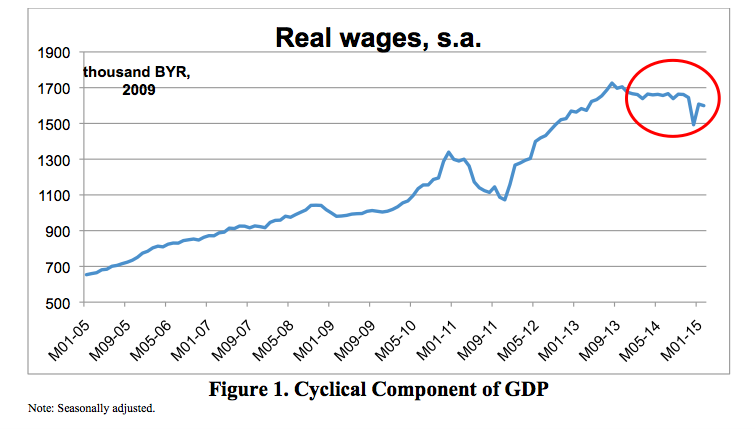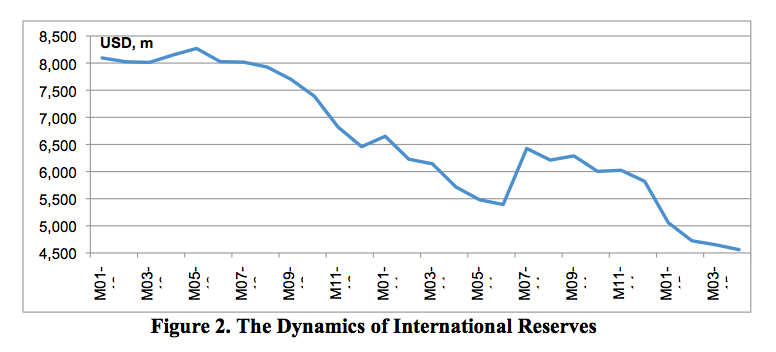Belarus Turns to Pro-Western Nations in the Middle East

Image: Belarusian Ministry of Foreign Affairs
Belarus's recent leaning towards pro-Western nations in the Middle East follows fast on the heels of rapprochement with the West. On 6-7 May, Joint Belarus-Saudi Committee on Cooperation will meet in Riyadh. On 15 April, Belarus opened an embassy in Qatar.
Establishing closer links with the very centres of conservative Arab bloc allied with the West is a milestone in Belarusian foreign policy. In the past, Minsk enjoyed amicable relations primarily with the so-called radical republican regimes in the Middle East. Saddam's Iraq, Qadhafi's Libya, Assad's Syria, as well as Ahmadinejad's Iran figured among Belarus's main partners.
The shift towards pro-Western monarchies reveals a contradictory, yet pragmatic approach by Minsk. The Belarusian government is looking for quick money to compensate for Belarus's trade deficits with other countries, though some odd deals and alliances have emerged as a result.
Minsk's New Friends Killed Its Earlier Buddies
Commenting on the embassy opening in Qatar on 31 March, deputy foreign minister Alyaksandr Huryanau called Qatar Belarus's “longstanding political partner.” This is a remarkable statement given this nation's role in toppling Minsk's former friends in the Middle East.
Minsk's new approach in the Middle East complements its recent rapprochement with the West Read more
The partnership with Qatar complements Minsk's other policies in the region. Besides establishing closer relations with Saudi Arabia, the Belarusian government has undertaken many other activities in the region in the last two months. It held political consultations with Oman and the UAE, received an Omani parliamentary delegation, sent its representative to a ministerial meeting of the Arab League – dominated by conservative Arab nations, – and sent a delegation to Pakistan, another nation allied with the pro-Western bloc in the Middle East.
What is more, Belarus has enjoyed excellent relations with Erdogan's Turkey and made attempts to befriend pro-Western Kurdistan. Minsk's policies in the Middle East complement its policy of rapprochement with the West. Belarus's attempt to move away from risky partners challenging the West is greatest in the history of its foreign policy to date.
Any Money in Sight?
Belarus's previous, more limited, attempts at partnering with pro-Western states in the Middle East did not pay off as expected. In 2011, Minsk quietly renounced its close partnership with Libya and minimised its ties with Iran and Syria. It secured promises from Qatar of a new level of economic relations and investment. Alyaksandr Lukashenka has designs to create a kind of “Qatari Island,” a huge economic centre built on Arab money in Belarus, though thus far these and other plans have ended up creating nothing but a few hunting estates for Arab princes near Minsk.
A similar fate befell another project publicised over the past couple years – bringing Omani money to Belarus. Omani businesses received a big swathe of land in Minsk to develop, but in 2012 gave up plans in the Belarusian capital.
Belarus's firm Beltekhekspart reportedly supplied ammunition to Libyan armed groups Read more
Yet trade with the Gulf Arab monarchies has continued to slowly grow. In 2014, Belarus-Saudi commodity trading was valued at more than $95m. This is almost as much as the last year's Belarus-Iran trade turn over of $97m.
In addition, Minsk has become involved in murky deals with pro-Western Arab monarchies in other countries as well. This March, Reuters quoted an unpublished UN Security Council report on Belarus, according to which Beltekhekspart was supplying Libyan armed groups with ammunition. Minsk retorted that the deals were legal and involved the Libyan government. Importantly, the groups supplied by Belarus seem to enjoy Qatari support.
Later on, the French specialist bulletin Intelligence online added that military equipment might be also supplied by the Belarusian firm to Libyan militias. According to the French publication, Western governments gave tacit support to these supplies.
Away From Iran and Syria?
As Minsk establishes rapport with the pro-Western Arab monarchies, it has been easing the level of contact with their opponents in the region – namely, Iran and Iran's allies. This year, Belarusian Foreign Minister Uladzimir Makei has visited Syria only once, this past February.
Now, Tehran and its allies are displaying more interest in maintaining relations with Minsk. In February, the Iranian Foreign Minister Mohammad Javad Zarif came to Minsk, in April, and Iraqi Foreign Minister Ibrahim al-Jafari and Syrian Minister of Industry Kamaleddin Ta'am have visited Belarus.
Yet these contacts are a mere shadow of Belarus's partnerships with these countries in the 2000s, when Minsk would host a new Iranian delegation almost every month. Minsk's recent level of engagement are not only less frequent but also far less meaningful. For example, Iraqi Foreign Minister's visit to Belarus resulted in both parties signing of the Memorandum of Understanding on Cooperation in Sports.
Belarus's trade with both Iran and war-ravaged Syria has decreased in recent years. While in 2008, Belarus-Syria trade made up over $85m, last year it barely exceeded $30m. Current promises to establish an assembly production plant for Belarusian MAZ trucks in Syria are unlikely to materialise. While Iran may indeed pay for such a project in Syria, the ongoing civil war in Syria makes the actual implementation of the project unlikely in the near future.
To Support the Winners
The Belarusian leadership has not changed its ideological preferences; it had none to begin with Read more
The Belarusian government may go as far as to use its relations with Syria, Iran, and Iraq as a bargaining chip in relations with Western-allied Arab monarchies. The kings of the Gulf's willingness to buy up Iran's allies has already been exposed by Wikileaks, though Belarus can hardly attract the attention of Arab rulers on its own, and as such it is becoming an important ally of Tehran and Damascus and even as a source of military equipment and expertise for Syria, Iran, or Shiite Iraq.
The Belarusian leadership has not changed its ideological preferences; it had none to begin with. Not only does it is seek rapprochement with Western allies in the Middle East, but it has also followed a similar approach in other regions. For example, its reception of North Korea's Foreign Minister in March was rather cold. The Minister's trip was shortened by two days. Belarusian officials talked about "similar [to Pyongyang's] approaches to many issues" but not about "shared views," a standard statement in negotiations with developing countries. The Belarusian Foreign Ministry has emphasised that the meeting was "protocol-related".
Regardless, deals can be made with Minsk. The logic of Belarusian foreign policy stems from the political economy of a land-locked country with no notable natural resources and an industry that is in bad need of modernisation. Even though Lukashenka has decried the so-called Arab spring, which knocked down some of his earlier comrades, he prefers to accept the new situation and is working with the victors. The main priority of the Belarusian government is finding money that will allow it to survive.






